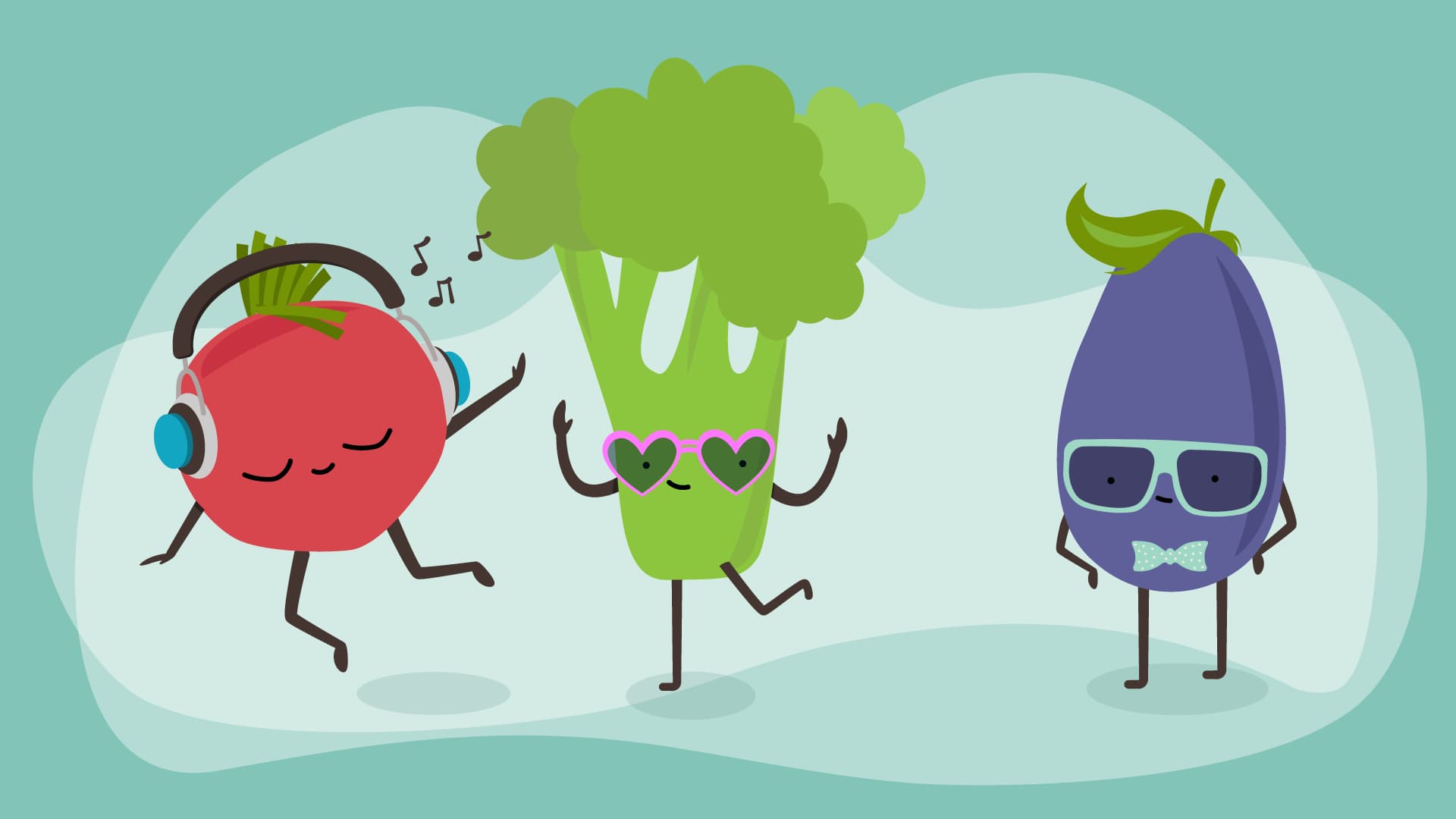Cool Food Pledge to Reduce UMD’s ‘Foodprint’
UMD Becomes First University to Join Coalition Fighting Climate Change Through Sustainable Menu Choices

Illustration by Valerie Morgan
UMD became the first university to join the Cool Food Pledge, which aims to change attitudes about eating and bring more sustainable food to campus.
How do you turn a freshman on to fresh greens, convince a department chair to chuck chicken for chickpeas, or get a biochemist to bypass that burger and beeline for the butternut squash?
We’re about to find out, as the University of Maryland yesterday became the first university on the planet to join the Cool Food Pledge, an initiative to change attitudes about eating and bring more sustainable food to dining halls, campus cafes and event catering. Signatories commit to collectively slash food-related greenhouse gas emissions 25% by 2030.
It won’t happen overnight, but the university is challenging its culinary operations team to begin developing tasty approaches to using plant-based foods that need less land, water and other natural resources to produce.
That doesn’t mean dining halls are cutting their meat offerings, said Bart Hipple, assistant director of dining services. They just might not give them the starring role on the menu they’ve long had.
“We’re going to be talking more and emphasizing more and giving more counterspace to the healthier food—food with a lower ‘foodprint,’ which is a word we made up,” he said.
To spread the word, Dining Services—which serves 6 million meals a year—will leverage its social media, smartphone app and campus programming to share information with the campus community about the nutrition and sourcing of its menu offerings. It also will engage the Student Government Association and Residence Hall Association in tastings and campaigns, as well as ask parents to get involved by sending “Recipes from Home” that are better for the planet.
UMD has an enormous opportunity to reduce the university’s climate footprint with more sustainable food options while helping students develop lifelong sustainable eating patterns, said Colleen Wright-Riva, director of dining services at the University of Maryland.
“Students have told us they care about fighting climate change,” she said. “Now, the food they eat—a huge part of their impact on the planet—can reflect these values and help achieve a more sustainable future.”
Eating and climate change are inextricably linked, with agriculture and land-use changes (which frequently result from agriculture) accounting for nearly a quarter of all greenhouse gas emissions, according to the World Resources Institute (WRI), which serves as secretariat of Cool Food.
But food and agriculture can also be powerful climate solutions. Animal-based foods account for two-thirds of agricultural greenhouse gas emissions, while plant-based foods almost always have lower environmental impacts. According to WRI research, the average American could cut their diet-related environmental impacts nearly in half by eating fewer animal-based foods and more plants.
“Simple nudges, like using more appetizing language to name plant-based dishes, can change people’s behavior in big ways,” said Daniel Vennard, director at the World Resources Institute. “Through the Cool Food Pledge, signatories tap the latest behavioral science to help consumers choose foods with lower carbon footprints. This is fresh ground in the battle against climate change.”
Other signatories of the pledge, first announced last September, include organizations such as Morgan Stanley, Hilton, WeWork, Genentech, UCLA Health, the City of Milan and Farmers Restaurant Group. Collectively, they serve more than 100 million meals annually.
The Cool Food Pledge is an initiative of World Resources Institute, UN Environment, Carbon Neutral Cities Alliance, Health Care Without Harm, Practice Greenhealth, Climate Focus, EAT and the Sustainable Restaurant Association. At its inaugural celebration in New York on Sept. 24, signatories will announce progress and call on others to put sustainability on the menu.